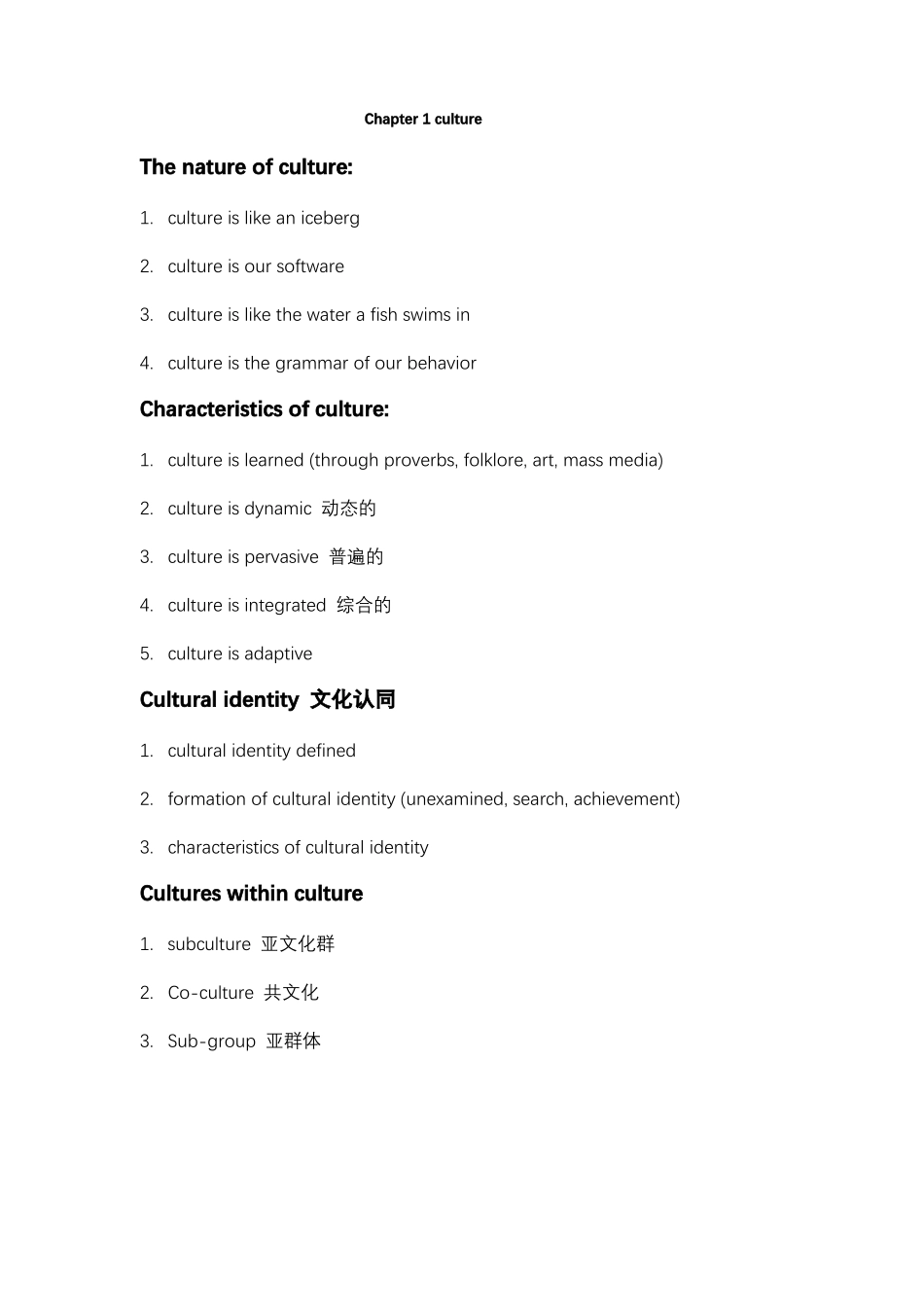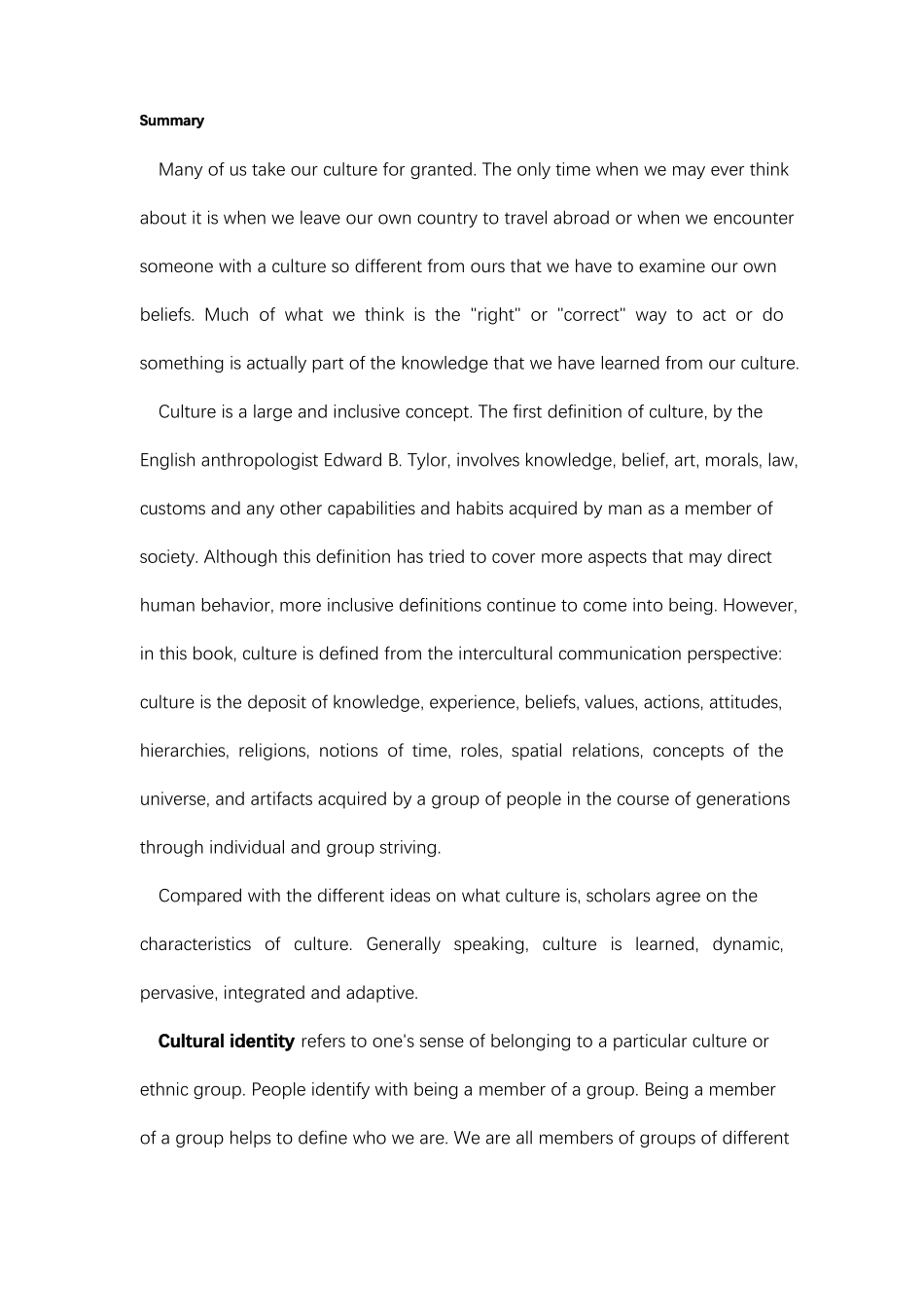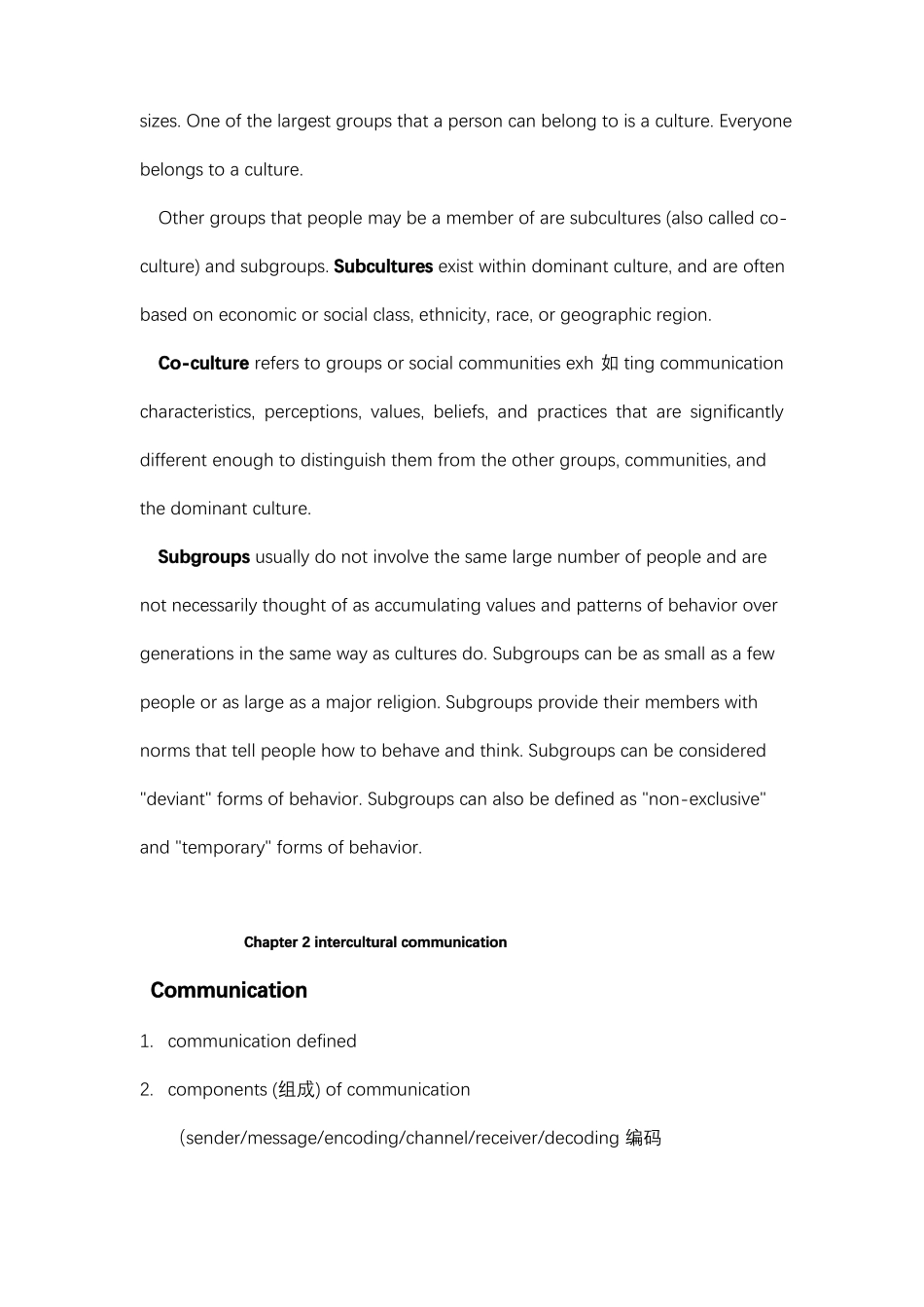Chapter 1 cultureThe nature of culture:1. culture is like an iceberg2. culture is our software3. culture is like the water a fish swims in4. culture is the grammar of our behaviorCharacteristics of culture:1. culture is learned (through proverbs, folklore, art, mass media)2. culture is dynamic 动态的3. culture is pervasive 普遍的4. culture is integrated 综合的5. culture is adaptiveCultural identity 文化认同1. cultural identity defined2. formation of cultural identity (unexamined, search, achievement)3. characteristics of cultural identityCultures within culture1. subculture 亚文化群2. Co-culture 共文化3. Sub-group 亚群体SummaryMany of us take our culture for granted. The only time when we may ever thinkabout it is when we leave our own country to travel abroad or when we encountersomeone with a culture so different from ours that we have to examine our ownbeliefs. Much of what we think is the "right" or "correct" way to act or dosomething is actually part of the knowledge that we have learned from our culture.Culture is a large and inclusive concept. The first definition of culture, by theEnglish anthropologist Edward B. Tylor, involves knowledge, belief, art, morals, law,customs and any other capabilities and habits acquired by man as a member ofsociety. Although this definition has tried to cover more aspects that may directhuman behavior, more inclusive definitions continue to come into being. However,in this book, culture is defined from the intercultural communication perspective:culture is the deposit of knowledge, experience, beliefs, values, actions, attitudes,hierarchies, religions, notions of time, roles, spatial relations, concepts of theuniverse, and artifacts acquired by a group of people in the course ...


